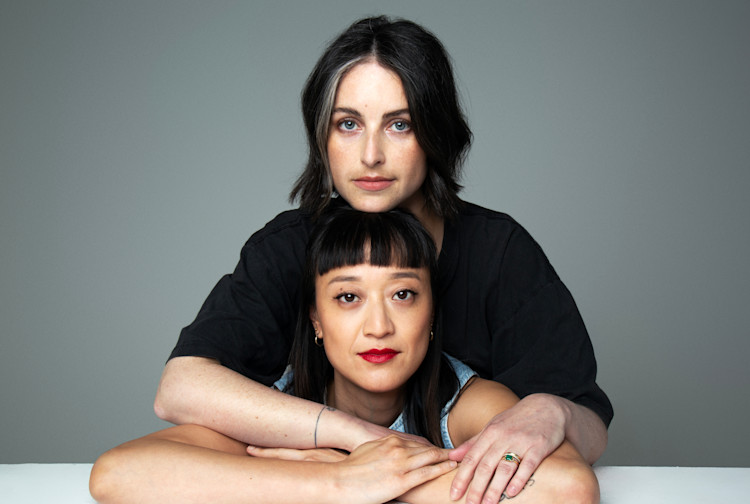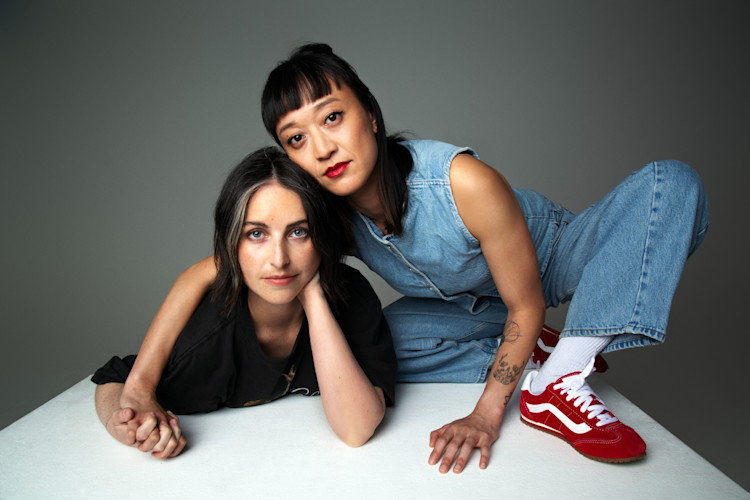
She Said So
JOURNAL
Meet Melissa d’Engelbronner and Connie Chow, the duo behind shesaid.so Amsterdam. Both expats, they met at work and quickly bonded over a shared frustration: where was the space for women and gender nonconforming people in the music industry? So they created it. From mentorships to dinners to panels on bias, they’re not just part of the scene—they’re reshaping it. Everything they do is about bringing people together and amplifying the voices that often go unheard.
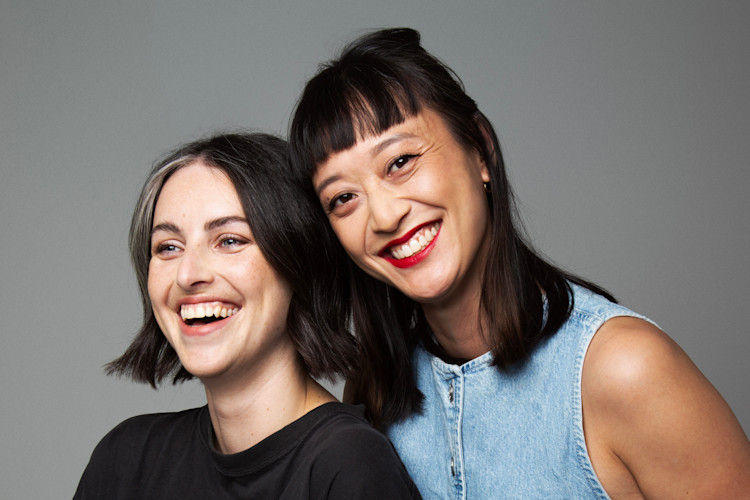
Let’s start at the beginning: what kind of role did music play in your lives growing up?
CONNIE: I started dancing when I was really young—it was my first way of expressing myself. I grew up in a pretty traditional Chinese family, I thought I had to become a doctor. So, I tried that. I studied biology, got a job in that field… and hated it. Quit, moved to LA, and started working behind the scenes at festivals—literally unlocking dressing rooms for artists and fetching Gatorade (only the blue one, of course). Eventually, I found my way into artist management and stayed in that world for ten years. But during the pandemic, I needed a reset. I moved to Amsterdam and started working at FUGA, a music distribution company. That’s where I met Melissa—and we quickly bonded over the same frustrations with the industry. We kept waiting for someone Dutch to start something for women and gender nonconforming people here. And then we thought: fuck it—let’s do it ourselves.MELISSA: I’m originally from Scotland, but I kinda lost my accent though—haha. I studied international relations, but music was always in my life. I played piano, drums, and sang growing up. Still, the idea of working in music never really felt like a “real” option until I accidentally landed an internship in Amsterdam. That company happened to share a building with FUGA, and I ended up working there myself. When Connie and I met, we realized we shared the same itch to build a more inclusive community in music. So we started shesaid.so Amsterdam [a local chapter of the global community shesaid.so]—and suddenly all those late-night venting sessions had a real purpose.What did you notice specifically that made you feel something had to change?
MELISSA: The heart of the scene is still dominated by men. One thing we both noticed was how effortlessly men support each other in this industry. Sharing tips, passing on contacts, opening doors. That support network exists for them, but for women and gender nonconforming people—it’s a lot more fragmented. The community is there, but the structure isn’t.CONNIE: And we wanted to build that structure, especially here in Amsterdam where, as expats, we didn’t see anything that was broad enough and inclusive enough. There are some women-in-dance collectives, which are great, but we felt there was room for a wider umbrella—something that included people across genres, from hip-hop to classical. Amsterdam isn’t just a dance music city, and we wanted to reflect that.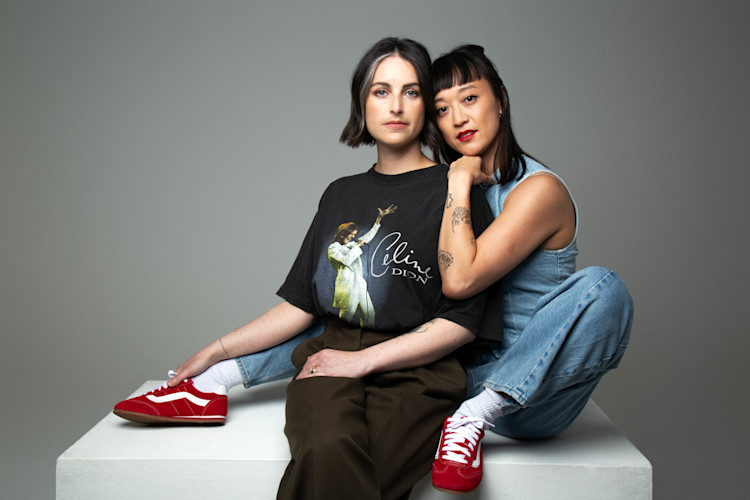
Starting a new community as two expats in a very Dutch scene—was that challenging?
CONNIE: Absolutely. One of our first big projects was a hip-hop mentorship program with Johnnie Walker’s “Pass the Mic” campaign. And in that process, you have two people who didn't grow up here, who don't speak the language and knew very little of the Dutch hiphop-world. We had to learn fast—LinkedIn deep-dives, cold emails, friend-of-a-friend intros. But it paid off. We saw a massive increase in people from the hip-hop community at our events afterward. That felt really rewarding.MELISSA: We also heard over and over again how important it was for women to simply be in the same room. The dinner at the start of the mentorship program is what people loved the most. There’s something powerful that happens when you bring women together—an energy that’s hard to describe but so real.You’re doing events, dinners, mentorships, workshops—how do you keep it all going?
MELISSA: We don’t sleep? [laughs] No, but really, we do this next to our full-time jobs. It’s a passion project, and that’s why we’ve been able to keep it up. We’re also now officially a foundation and part of the global shesaid.so collective, which has been around for ten years.CONNIE: One thing that really keeps us going is the feedback from people. The community is so appreciative and so ready for this. We’re always evolving, always learning. We even have a Google Doc called “Things We’ve Learned” that’s basically a list of mistakes and “never again”s. But it’s all part of it.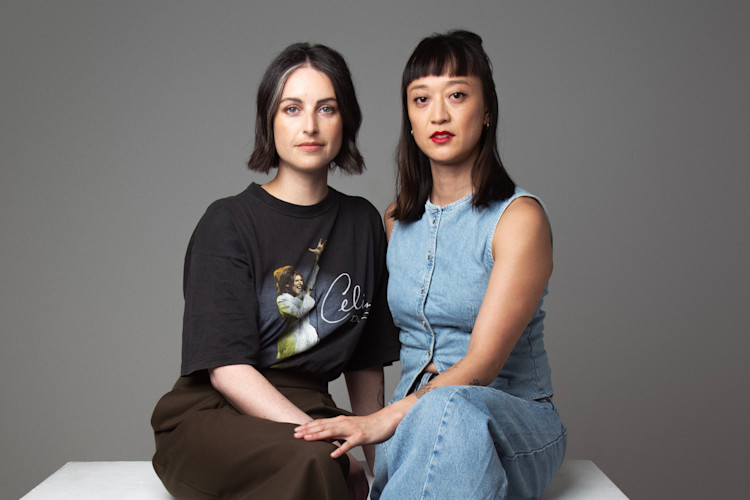
I read you’re organizing a workshop that asks people to bring a male colleague. Why that format?
CONNIE: Because if we want actual change, men need to be part of the conversation. Otherwise, we’re just preaching to the choir. We’re doing a workshop on unconscious bias where everyone brings a man. Half the spots are for people from major music companies, the other half is open. We want to create a space where men can ask questions, make mistakes, and learn—without being shut down immediately.MELISSA: We’ve realized a lot of men want to be allies but just don’t know how. They’re afraid of saying the wrong thing, of being the “white knight.” We want to give them a space where they can figure it out with us. And yes, women have biases too. Everyone does. It’s just about recognizing them and trying not to act on them."We kept waiting for someone else to start it. And then we thought: fuck it—let’s do it ourselves."
Is it frustrating that you have to do this kind of work? That the industry isn’t taking more responsibility?
CONNIE: It’s definitely overwhelming sometimes. There are so many layers to the problem—safety at festivals, language used in studios, the casual nature of the industry itself. It’s built in a way that’s inherently unsafe. But we’re hopeful. We believe in change through education, and we’re seeing it happen. Slowly, but it’s happening.MELISSA: Gen Z gives me so much hope. They don’t take shit. They’re going to come in and demand sober studio sessions if that’s what they need to feel safe—and that’s exactly the kind of shift we need. You can make it more formal without losing the vibe or without losing the creativity. It’s not one or the other.